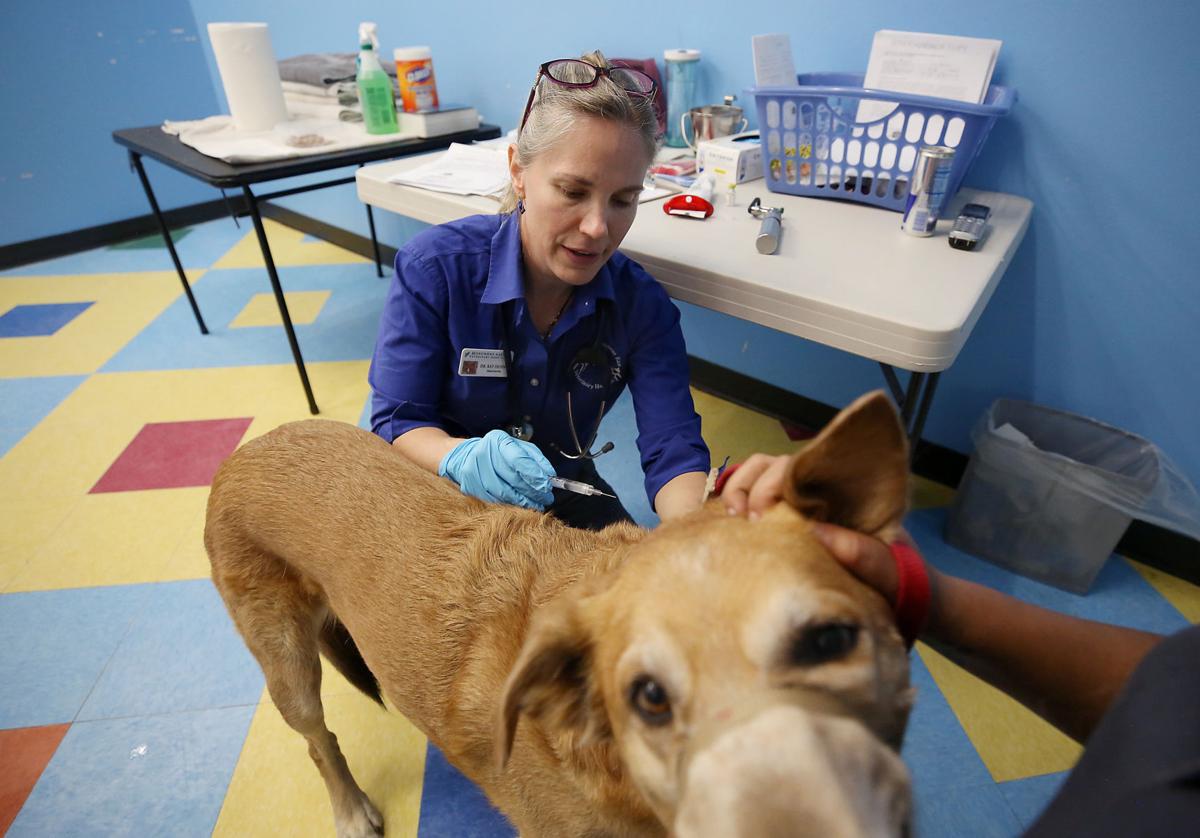Tucson-area dog owners are advised to avoid Udall Park on the city’s northeast side as a precaution against a contagious bacterial disease that is causing illness in local canines.
On Monday, county officials confirmed that a dog that frequented the dog park at Udall Park, 7200 E. Tanque Verde Road, has canine leptospirosis. The dog visited the park while showing symptoms but prior to being diagnosed, leaving the possibility that many dogs were exposed.
The Arizona Agriculture Department has confirmed eight recent cases of the disease in Pima County dogs. County officials believe all local dogs with confirmed cases have so far survived, though the disease can be deadly.
The disease may be treated with antibiotics if it’s caught early enough. However, in more advanced cases, dogs go into kidney or liver failure and may require other types of care, costing thousands of dollars.
Leptospirosis is zoonotic, which means it can spread to humans, too. No human cases have been reported here.
County officials advise that for the time being, dog owners should avoid bringing their pets to Udall and to consult a veterinarian if their dog was recently there. The exception would be any dogs that have been vaccinated against leptospirosis, said Dr. Jennifer Wilcox, director of veterinary services at the Pima Animal Care Center. But most local dogs have not received the leptospirosis vaccine, she added.
Interviews with veterinarians and dog-related businesses indicate the number of dogs locally who have become ill with leptospirosis may be higher than the official count. Wilcox said at least two additional dogs have had suspected cases, including one that was euthanized. The disease was virtually unheard of in local dogs until May.
Some dogs that may have been exposed are on prophylactic antibiotics under their veterinarian’s care.
People and dogs can be infected through contact with infected urine or water or wet soil contaminated with urine.
Wilcox told reporters Monday that county staff members are on high alert and carefully monitoring dogs at the county-operated shelter. So far, none appear to have contracted the disease.
County officials are coordinating with the city of Tucson, Arizona Department of Health Services, the Arizona Department of Agriculture and the Arizona state veterinarian.
Wilcox recommends veterinary clinicians practicing in the Pima County area consider leptospirosis in their diagnoses during the evaluation of ill animals.
“It can look like a lot of things at the beginning,” she said.
She also recommends pet owners who take their dogs to boarding facilities and dog parks, or who allow their pets to roam outdoors with exposure to livestock, wildlife, or potentially contaminated water, contact their veterinarian .
A vaccine against leptospirosis is not included in the regular recommended “core” vaccines that dogs get at their annual checkups. Dog owners must specifically ask for the vaccine if they want it. The vaccine requires two shots and two visits to the vet, is safe and worth considering, Wilcox said.
Common signs of leptospirosis in dogs include drinking more than usual, urinating more than usual, a lack of urination, redness in the eyes, depression, reluctance to eat, or fever.
People infected with leptospirosis may not develop any symptoms, or only mild symptoms. If symptoms do develop, they usually start suddenly, said Dr. Carlos Perez-Velez, deputy chief medical officer at the Pima County Health Department.
The main symptoms include fever, shaking chills, muscle aches and headaches. Some people get very sick and may develop serious problems in the lungs, liver and muscles, he said. Most people who get leptospirosis get better on their own. Those who get sick enough to have to seek medical care may need antibiotics.
While human leptospirosis infection is rare, county officials say there are precautions that pet owners, veterinarians and their staff should consider.
They include avoiding areas where pets urinate frequently, washing their hands after taking pets for walks and washing clothes that may have come into contact with pet urine.





